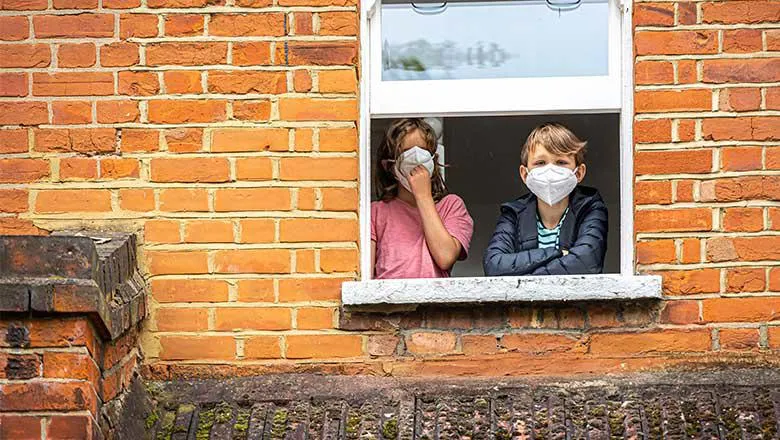Concern doesn’t automatically lead to action. You need agency before you know what to do. So, the question is how can we help people find answers about how they can mobilise their anxiety into action.
Dr Kris De Meyer
16 June 2020
Helping communities manage anxiety on global issues such as COVID-19 and climate change
Research into ecoanxiety has been used to help support communities during the pandemic by empowering them to take meaningful action.

Dr Kris De Meyer, a visiting lecturer in King’s Department of Geography, and expert facilitator, Lucy Hubble-Rose ran a workshop earlier this year in Cornwall to support local influencers to equip their workplaces and communities to take meaningful action on climate change. Now, some of the learnings from that are being used by participants to help them manage anxiety caused by the COVID-19 pandemic and lockdown.
In his research, Dr De Meyer explores how people perceive climate change and what interventions are possible to try and bridge the gap between anxiety and a sense of agency to make change. In 2019, just over a third of the British public reported that they felt anxious because of the environmental emergency.
He believes he has found a format that works and this was the focus of the three-day workshop he ran for 15 participants from local authority, regional businesses, non-profit organisations and freelance professions. It included fundamentals on how to cope with uncertainty, what meaningful action on climate change looks like from different perspectives, how to break down ideas into tangible actions and how the participants can facilitate change in their spheres of influences.
“There is a lot of diversity on what action on climate change should look like and how to get everyone in agreement,” he said.
“We took extra care to help everyone understand the differences of opinion. By the end, the participants felt better equipped to facilitate community efforts on climate change, that is both meaningful for the people but also in terms of carbon emissions.”
A couple of weeks later, COVID-19 hit and lockdown began. Workshop organiser and community leader, Sara Marsh found the skills learnt during the workshop are adaptable to all crises.
“I’ve been trying to implement change in the community for years and the workshop has given me some tools that allows me to better understand people’s barriers or reluctance to engage in climate change conversations, like their fear and anxiety,” she said.
I’m now using these same tools during the COVID-19 crisis and listening to people’s fears and what they feel they need help with – so that as an organisation, we can figure out where we can best support our community.
Sara Marsh, Manager at Treverbyn Community Hall
“I think it’s a really useful skill to have – active listening. It enables people to talk through an issue and come up with their own solutions, rather than putting your perspectives on what the solution should be.”
During lockdown, Treverbyn Community Hall, where Sara Marsh is the manager, has been taking surplus foods from the supermarkets and redistributing that to local community. This simple act reduces food waste, while tackling food poverty, and is one of the new initiatives the community hall has started.
Both crises are what Dr De Meyer calls “wicked” because they are seemingly invisible. This is what he believes blocks a sense of agency.
As for Sara Marsh, she feels that although her level of anxiety is quite high, she is motivated to act.
“I feel like I have some sense of agency, both within my own life and also in my ability to influence action within the community where I work. My role is to figure out what can we, as an organisation, can do to enable our community to have that same sense of agency.”
She also feels that when climate change comes back on the agenda, her community will be ready.
“I think, for me, the beauty of the last few months is that it is showing how it is possible to have a different life. There are some opportunities coming out of the COVID-19 crisis that could have quite significant impacts on tackling climate change.”
The next step is to bring the workshop group back together and explore their next moves, especially considering recent events.
Dr De Meyer will also be running training in Oxford.

